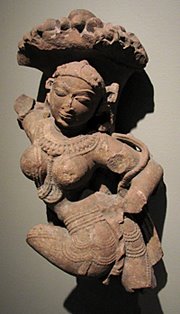She read Jonathan Strange and Mr. Norrell, finishing it on Wednesday. It is one of the most enjoyable novels I have read in recent years. Harry Potter for adults is the inevitable comment, though it doesn't do justice to Susanna Clarke's magical prose or her skill as a storyteller. I'm not one of those who disparages J. K. Rowling's Potter series, which is fun, but not in Clarke's league.
I have been reading an eclectic selection of authors, including Emerson (more on him in another post), selections from Thoreau's journal, ( I to Myself edited by Stephen Cramer), Carnation, Lily, Lily, Rose (see previous post), some Martin Gardner essays, a chapter or two from The Lord of The Rings, which I dip into regularly, and John Connolly's The Book of Lost Things, which I find interesting but not as engaging as some readers have reported. I have also read three of Washington Irving's Christmas sketches, "Chistmas Eve," "Christmas Day," and "Christmas Dinner," each of which I found charming and enjoyable. I have to say that charm is a quality conspicuously lacking from Emerson. Irving provides a welcome and cheerful relief. Here is an excerpt from "Christmas Dinner" dinner, which harks to the traditional Christmas ghost story.
I am half inclined to think that the old gentleman was himself somewhat tinctured with superstition, as men are very apt to be who live a recluse and studious life in a sequestered part of the country, and pore over black-letter tracts, so often filled with the marvellous and supernatural. He gave us several anecdotes of the fancies of the neighbouring peasantry, concerning the effigy of the crusader which lay on the tomb by the church altar. As it was the only monument of the kind in that part of the country, it had always been regarded with feelings of superstition by the good wives of the village. It was said to get up from the tomb and walk the rounds of the churchyard in stormy nights, particularly when it thundered; and one old woman, whose cottage bordered on the churchyard, had seen it, through the windows of the church, when the moon shone, slowly pacing up and down the aisles. It was the belief that some wrong had been left unredressed by the deceased, or some treasure hidden, which kept the spirit in a state of trouble and restlessness. Some talked of gold and jewels buried in the tomb, over which the spectre kept watch; and there was a story current of a sexton in old times who endeavoured to break his way to the coffin at night; but just as he reached it, received a violent blow from the marble hand of the effigy, which stretched him senseless on the pavement. These tales were often laughed at by some of the sturdier among the rustics, yet when night came on, there were many of the stoutest unbelievers that were shy of venturing alone in the footpath that led across the churchyard.





No comments:
Post a Comment